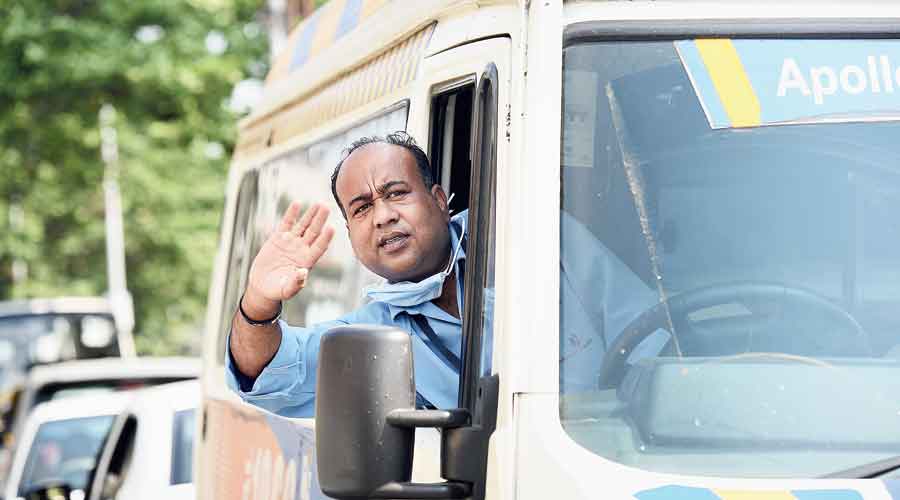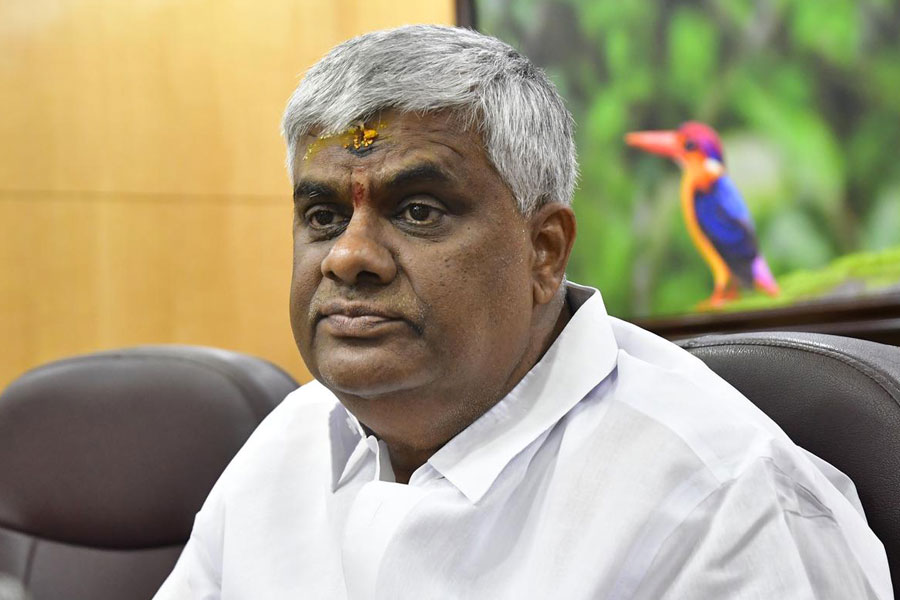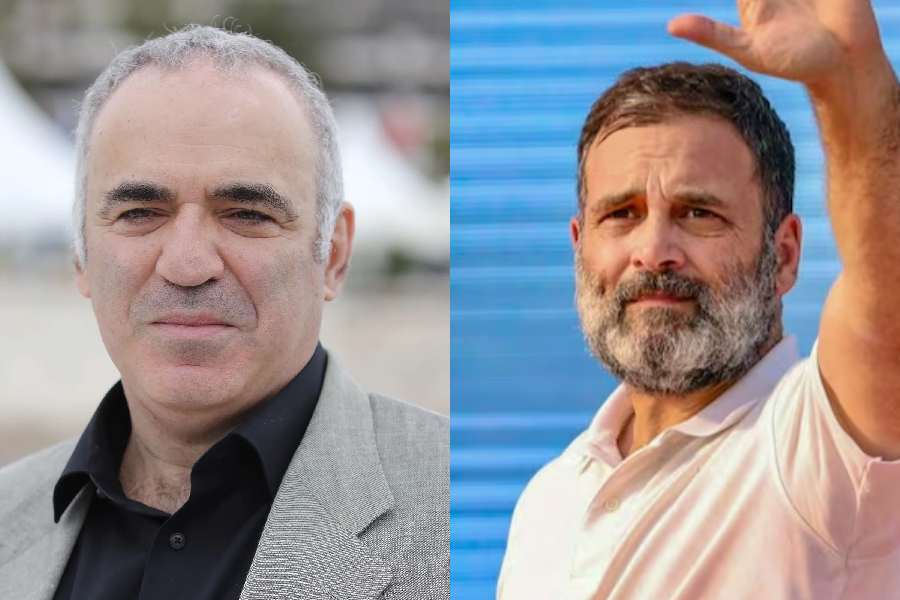You need hard work and patience, says Arup Karan, whether you are driving an ambulance or playing the guitar. He should know, because he does both.
The 47-year-old resident of Oriya Bagan in Beleghata works for a leading private hospital in the city as an ambulance driver. He has been working there since 2003. He works in shifts that sometimes extend to 24 hours. The pandemic has been the most trying experience.
But through the years, in between the work shifts, he has been giving private guitar lessons to several students. Now he teaches about 20 to 22 students, of all ages.
Karan is visiting me at my south Calcutta residence on his scooter, the guitar strapped to his back. He is a jovial man with a benign face and a smile that never disappears.
I ask him about the Covid experience. “They were dark”, he says, talking about the early days. He uses the word literally, too.
“First we had to get used to wearing the PPE all the time,” he says. The hospital has a room for ambulance drivers to rest. “But we don’t know when the next call will come,” says Karan.
Picking up Covid patients was not so different. All patients were not in a critical state. What was difficult, says Karan, is the location of the patient’s house and the patient’s condition. Lanes are difficult to negotiate with a stretcher.
A male nurse — “brother” — is always present in the ambulance. The driver and the nurse are responsible for picking up a patient from his or her home or dropping him or her home after discharge from the hospital. As an ambulance driver, Karan has received basic life support training, which includes artificial resuscitation. The biggest challenge, he says, comes with having to drive the ambulance with a critical patient, especially over a long distance.
“I have driven 300km to 400km to bring a patient to Calcutta. You have to be fast, at the same time reassure the doctor that the patient is reaching in time, yet not hurt the patient if the road is bumpy. You have to reassure the patient, most of all, that help is at hand,” he says.
Bad roads are a very big challenge for the ambulance driver. The city does not seem to be aware of that. “That is why you have to be patient,” says Karan.
“The nights were scary when we began with during the pandemic,” he says. The EM Bypass looked haunted. “I would often look at the dark and maybe one vehicle would pass in half an hour. It looked like another planet.”
Going back home on his scooter late in the night was a nightmare. Street dogs came tearing along after him, every night. “Nobody was giving them food during lockdown. The dogs were hungry.”
As an ambulance driver, he cannot get over one or two experiences. He remembers dropping a patient, an old woman, possibly an NRI, to a five-star hotel in the city after her treatment. “For her, a hospital bed was installed at the hotel and a team of five-six doctors came in with her,” he says.
On another occasion, he remembers how the streets were cleared for his ambulance on a working day by the bike-gang of a political leader who was inside his ambulance.
Karan grew up at his ancestral home in Beleghata, the youngest of three siblings. He still lives there with wife and daughter, a student of Class IV and a cricket player. He shares two rooms with his elder siblings, who live there too.
Due to his family’s limited means, he could not continue his studies beyond Class IX.
He learnt driving and was driving private cars by the early 90s. But by that time he had developed a passion: the guitar.
He had heard the Spanish guitar being played on stage and fallen in love with it for its sound and rhythm, and the life that beats in it. He began learning it. In a few years, he was performing on stage, often as back-up for the singer, and was also doing “tution-i” — giving private lessons.
Music gives him peace. It keeps him centred in a world that is obviously more turbulent than that of many others, though he does not let it show. He has learnt to play the keyboard and the flute, too.
The private teaching helps with an extra income, which is welcome. He manages to find the time for the tuition, during weekends especially.
It is hard work. “Without hard work, the guitar won’t speak,” he says.
“But I have said enough about myself. Now I will play,” announces Karan and unsheaths his guitar.
Rabindrasangeet flows into Rabindrasangeet. He plays the first stanza, then the refrain, which leads to another song, making a chain of the Tagore songs that Bengalis are most prone to singing: Purano shei diner kotha merges into Khara bayu boy bege, which becomes Boro asha kore eshechhi go. He changes gear, into Bengali and Hindi classic pop, with a large dose of R.D. Burman. “fast songs”: Mone pore Ruby Roy, Hari Om Hari, Chura liya, Do lafzon ke hai. He also plays the “Nagin bin” tune.
He is jamming with himself. He is no Eric Clapton, but goes to play obsessively, enjoying himself, and finishes with the Kishore Kumar number Chalte chalte and rises with a flourish.
“I can play, can’t I?” he asks. “Some people doubt that an ambulance driver can do such a thing. They think I am lying.”










